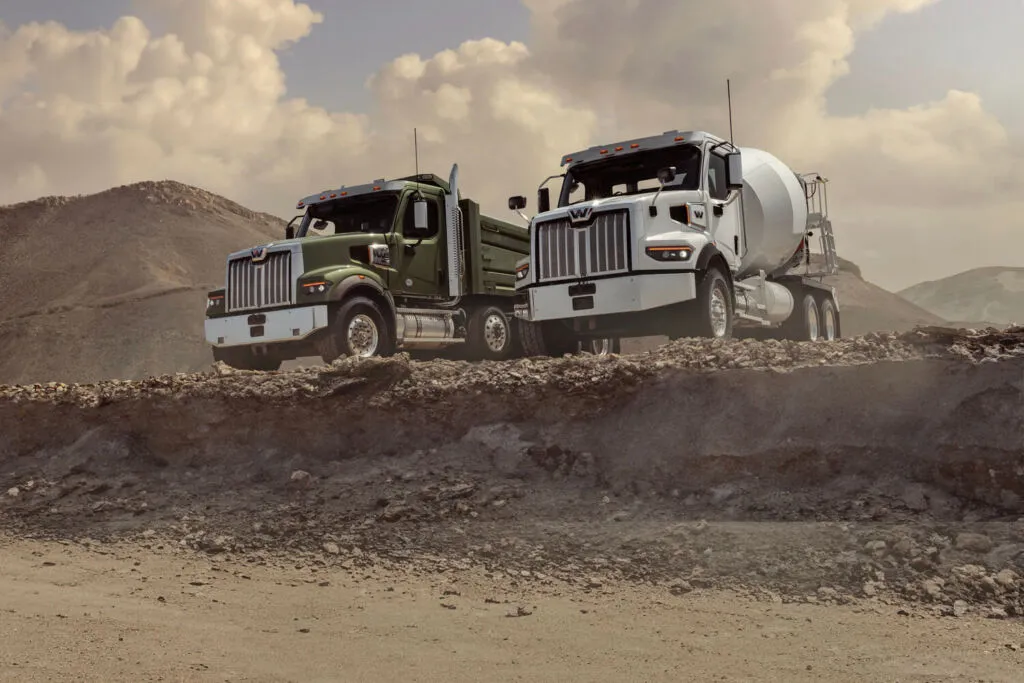
When selecting a heavy-duty truck for your business, understanding your needs and the capabilities of various truck models is crucial. Western Star trucks are renowned for their durability and efficiency, making them ideal across various industries. Here’s how to choose the Western Star truck that aligns with your business requirements.
Before diving into the various types of semi-trucks, it’s crucial to understand what constitutes a semi-truck. Essentially, a semi-truck consists of two main components: the tractor and the trailer.
The tractor is the powerhouse of the semi-truck, housing the engine and the driver’s cab. This is where the driver operates the truck and manages its functions.
The second component is the trailer or trailers that the tractor pulls. These trailers vary in design and purpose, carrying everything from heavy machinery to perishable goods depending on their configuration.
Day cabs are the simplest form of semi-trucks. They feature seating for the driver and occasionally a passenger and often include rear windows to aid in reversing and maneuvering. Ideal for short-distance trips that don’t require overnight stays, day cabs are shorter, making them easier to handle in confined spaces. Their versatility allows them to be paired with various trailer types, adapting to numerous transport needs.
Sleeper trucks are designed for long-haul journeys and come equipped with built-in sleeping quarters alongside the standard cab. Sleeper trucks offer a range of amenities to support extended periods on the road, providing comfort for drivers who spend nights away from home. Sleeper trucks can accommodate various trailer types, making them suitable for prolonged hauls across great distances.
Custom haulers are ideal for specific business needs that require tailored solutions. These trucks are modified to enhance performance in particular applications, such as heavy towing or specialized cargo handling. To suit precise operational requirements, you can customize a hauler with various features, including powerful engines and additional sleeping quarters. Due to their quality construction and powerful engines, custom haulers are typically employed to transport oversized loads over long distances.
Semi-trailers are essential components of the logistics and transportation industry, coming in various types and configurations to suit different hauling needs. Here’s an overview of common semi-trailer types and their specific functions:
Understanding these various trailer types helps choose the right one for specific cargo needs, ensuring efficient and safe transport of goods.
First, consider what your business actually needs. This involves understanding the type of loads you will be carrying, the environments in which the truck will operate, and the distances it will cover. For example, if your business involves construction or heavy hauling, you’ll need a truck like the Western Star 4900 built to handle rugged conditions and heavy loads.
Consider the payload and towing capacity you’ll need. Western Star trucks offer configurations that can handle different Gross Combination Weights (GCW), making them suitable for various commercial applications. Make sure the truck you choose can comfortably handle the maximum weight your business requires.
Opt for a truck known for its reliability and ease of maintenance. Western Star trucks are built to last and require less frequent repairs, which can reduce downtime and maintenance costs. Consider the parts availability and the support network for maintenance services.
Western Star trucks are built to endure the harshest conditions, from icy roads to rugged construction sites. A truck’s durability is critical, impacting its longevity and performance in demanding conditions.
Fuel costs are a significant part of running expenses. Western Star trucks are designed with fuel efficiency in mind, featuring aerodynamic designs and efficient engines. Choosing a fuel-efficient model can lead to substantial savings over time, especially with high-mileage use.
When making your final decision, weigh factors like the initial purchase price against long-term savings from fuel efficiency, maintenance costs, and resale value. Also, consider the warranty offered by Western Star and the services offered by Western Star dealers, which can provide additional peace of mind.
Western Star offers a range of models tailored to different business needs. Western Star trucks are known for fuel efficiency and advanced technology for long-haul operations, providing comfort for long drives and helping reduce operating costs. It’s essential to review the specific features of each model to determine which best meets your needs.
Choosing the right Western Star truck involves careful consideration of your business needs, the specific features of each model, and the overall value the truck will bring to your operations. By evaluating these factors, you can feel confident investing in a truck that will serve your business reliably for years to come.
When selecting a Western Star dealer, Velocity Truck Centres is the optimal choice for businesses across Western Canada. With over 40 years of experience, our network of dealerships and one service shop is dedicated to delivering unparalleled expertise, professionalism, and customer service.
As an Elite Support Dealer, we ensure the highest level of service by maximizing uptime for our customers. When you choose Velocity Truck Centres, you’re not just buying a Western Star truck but also gaining a reliable partner and network committed to your business’s success.